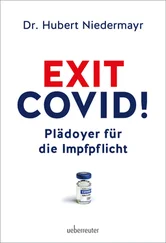Hubert Aquin - Next Episode
Здесь есть возможность читать онлайн «Hubert Aquin - Next Episode» весь текст электронной книги совершенно бесплатно (целиком полную версию без сокращений). В некоторых случаях можно слушать аудио, скачать через торрент в формате fb2 и присутствует краткое содержание. Год выпуска: 2001, ISBN: 2001, Издательство: McClelland & Stewart, Жанр: Современная проза, на английском языке. Описание произведения, (предисловие) а так же отзывы посетителей доступны на портале библиотеки ЛибКат.
- Название:Next Episode
- Автор:
- Издательство:McClelland & Stewart
- Жанр:
- Год:2001
- ISBN:9781551996240
- Рейтинг книги:3 / 5. Голосов: 1
-
Избранное:Добавить в избранное
- Отзывы:
-
Ваша оценка:
- 60
- 1
- 2
- 3
- 4
- 5
Next Episode: краткое содержание, описание и аннотация
Предлагаем к чтению аннотацию, описание, краткое содержание или предисловие (зависит от того, что написал сам автор книги «Next Episode»). Если вы не нашли необходимую информацию о книге — напишите в комментариях, мы постараемся отыскать её.
is a disturbing and yet deeply moving novel of dissent and distress. As he awaits trial, a young separatist writes an espionage story in the psychiatric ward of the Montreal prison where he has been detained. Sheila Fischman’s bold new translation captures the pulsating life of Aquin’s complex exploration of the political realities of contemporary Quebec.
Next Episode — читать онлайн бесплатно полную книгу (весь текст) целиком
Ниже представлен текст книги, разбитый по страницам. Система сохранения места последней прочитанной страницы, позволяет с удобством читать онлайн бесплатно книгу «Next Episode», без необходимости каждый раз заново искать на чём Вы остановились. Поставьте закладку, и сможете в любой момент перейти на страницу, на которой закончили чтение.
Интервал:
Закладка:
I stand motionless in the midst of this wild crowd that awaits our dazzling appearance at the window of our room. But you’re not here … This evening I begin my life without you. Ever since I’ve known that I’ve lost you, I’ve been aging at a terrifying speed. My youth has taken flight with you: centuries and centuries are carved into my inert body. People are looking at me, no doubt because of the sudden erosion that’s stamped on my face, and maybe too because I’m crying. Our story is ending in me badly. It’s dark. Everything dies if I’ve lost you, my love. I walk through this happy crowd that exasperates me. It’s not you who abandoned me, it’s life. Surely it’s not you, is it? One can’t see anything on the lake: the absolute night shelters me and settles in between us irrevocably.
I am walking in this foreign country, a man who has just lost you after finding you again by chance, joyfully, on a street in Lausanne and in a romantic bed at the Hôtel d’Angleterre. In the distance I hear the chords of “Desafinado” as I move away from the terrace of the Angleterre without even turning around. I no longer have a country, I’ve been forgotten. The torn Alps whose dark crenellations I can glimpse across the lake no longer bewitch me. The things we loved together have no meaning any more, not even life. Even the war, alas, since I’ve lost contact with your sovereign flesh, you, my only country! Starting now, I am living a glacial night. I own nothing except a gun that’s become ridiculous and some memories that are rendering me harmless. Where are you, my love? Trees swollen with darkness stand around the Château d’Ouchy and along the wharf where we two strolled at nightfall. That was last night. In the distance I can make out the confused sound of discordant music and a laughing crowd. I did not kill H. de Heutz. In fact I wonder what overwhelming coincidence made him want to go to the terrace of the Hôtel d’Angleterre at half-past six, to meet a woman — the blonde, perhaps? — he talked to on the phone. But he’ll never keep that appointment. Unless he turns up late, like me. Because if I’ve lodged a bullet in his shoulder, he may have found a way to have it tended to, then get into the grey car with the Zurich plates and, driving with one hand, arrive in Ouchy. Perhaps at this very moment he’s pulling up at the noisy terrace I’ve just left.
That speculation disturbs me. I retrace my steps. If he’s there, I want to see him, but even more I want to see the unknown blonde woman he arranged to meet on the phone just before our exchange of gunfire. I quicken my pace. No doubt I’m returning in vain because the blonde woman got tired of waiting for H. de Heutz. She has gone. And so H. de Heutz too will be alone and won’t know what to do. The terrace is as lively as ever; passersby stop to listen to music that has no meaning for me. I go back to the Hôtel d’Angleterre once again with the unfounded hope of finding K, who may have come back to the terrace too in desperation, hoping my absence was merely a delay. Lovers stroll nonchalantly, arm in arm, along the lakeshore, projecting their own emotion onto the unfathomable landscape that fills me with desolation. I’m here on the sidewalk, on the same side as the hotels that look out on the lake. I go up to the terrace of the Hôtel d’Angleterre, my heart pounding. I push aside the people who block my view. I look at all the faces. I scrutinize the back of the terrace. Just next to the orchestra I spy a blonde head. Who is it? Her face is hidden. She’s talking to a man, but he’s not H. de Heutz. I scan the overpopulated quadrilateral: every blonde woman attracts my attention, but none of them is you! It’s as if Lausanne only gives birth to blondes. I’ve never seen so many. But clearly, K isn’t here. I hope in vain; I die a thousand deaths whenever I spot a blonde head. Ah, I’ve always lived as I am living at this moment — at the outer limit of the intolerable … Tonight, all these blonde heads cause me pain because you’re not there and I’m looking for you desperately. I realize that it’s a waste of time: there’s no sign whatsoever of my earlier life on the enchanted terrace of this hotel. It’s as if I’d never come here with K, as if I’m surrendering to a fine hallucination, and the Hôtel d’Angleterre exists only in my devastated brain, like the Vaudois chateau where I spent my life waiting for a certain banker who’s interested in Caesar’s African wars and who abandoned his two sons in Liège so that he could rob all the banks in Switzerland! I rave in silence, surrounded by the din of this terrace crowded with people observing me as if I were an intruder. I decide to go to the hotel office. It’s hard to navigate through the tables, I keep stumbling and bumping into people.
The desk clerk recognizes me right away and favours me with a big grin.
“Here, Monsieur (and he remembers my name), there’s a message. The lady asked me to give it to you; she said you’d be dropping by.”
The clerk holds out a sealed blue envelope with no address.
“If you’d like a room for tonight, I can offer you one with a view of the lake, the same one you had yesterday. It’s free again.”
“No, thank you …”
“Goodbye, Monsieur …”
With trembling hands I open the blue envelope while I’m still in the lobby. I recognize K’s beautiful handwriting and I read her latest message: “The boss had an unexpected visitor this afternoon. Something incredible, I’ll tell you about it later. Bank transactions suddenly disrupted. I leave for the north tonight; the boss is going to visit friends on the Côte d’Azur. No matter how your approach to the bank president works out, I imagine you’ll go back to Montreal to see to our interests there. Come back. K.” As a postscript, she has added two lines: “Hamidou D. sends his regards. It’s a small world …”
17
VERY LITTLE time passed between my solitary stroll along the shore of Lac Léman and my arrest in Montreal in the middle of summer. After I read K’s message, everything came in a rush in disorderly succession: my departure from Lausanne, the firing of the four Rolls-Royce engines of the Swissair DC-8, the flight that looped over the range of the Jura, the endless celestial nothingness and then passing through federal customs at the Dorval airport. All things considered, nothing happened between my departure and my forced landing, nothing except the time it takes to move from one city to another in a high-speed jet. In Montreal I first went to 267 Sherbrooke Street West. There I found several open-necked Hathaway shirts, some books scattered here and there, and a keen sense that I had come home. Meanwhile, K was somewhere in the Hanseatic mist of Antwerp or Bremen, not with me; I’d become once more a lonely man deprived of love. I checked the newspapers; I found nothing about our “interests.” From a phone booth I tried to reach my contact: the operator (recorded) told me repeatedly that the number I had called was not in service. Very well. Now what? Thinking it over, to readjust more quickly, I walked endlessly. Of course I could risk proceeding irregularly since I couldn’t reach my contact by phone. Why not take the risk? After all, I’d have to establish a relationship with a member of the network. I decided to speak to M by phone. Just then I was ambling along Pine Avenue past the Mayfair Hospital: I went down the Drummond Street staircase, then stopped at the Piccadilly for a King’s Ransom. After that I made my way to the phone booths across from the Québecair office in the hotel lobby and dialled M’s number. We exchanged some remarks that would be disconcerting to the RCMP wiretappers but were meaningful to us: through this hypercoded language I learned that our network had been short-circuited by the anti-terrorist squad, that several agents had been detained in the Montreal Prison for nearly three weeks now, and that, as might have been expected, the money collected by our tax specialists was now part of the central government’s consolidated budget. A disaster, in conclusion, which M had miraculously escaped. Upset by these ambiguous revelations, I downed another King’s Ransom at the Piccadilly bar. The next day I cleared out my savings account at the Toronto-Dominion Bank, 500 Saint-Jacques Street West. I pocketed a hundred and twenty-three dollars in all, enough to live on for eight days, with no luxuries. From the outside phone booth across from Nesbitt Thompson, I called M again as arranged. We agreed to meet on the stroke of noon in the lateral nave of Notre-Dame basilica near the tomb of Jean-Jacques Ollier; of course we didn’t mention the illustrious abbé’s name or utter that of the old church whose presbytery stands next to the Montreal Stock Exchange.
Читать дальшеИнтервал:
Закладка:
Похожие книги на «Next Episode»
Представляем Вашему вниманию похожие книги на «Next Episode» списком для выбора. Мы отобрали схожую по названию и смыслу литературу в надежде предоставить читателям больше вариантов отыскать новые, интересные, ещё непрочитанные произведения.
Обсуждение, отзывы о книге «Next Episode» и просто собственные мнения читателей. Оставьте ваши комментарии, напишите, что Вы думаете о произведении, его смысле или главных героях. Укажите что конкретно понравилось, а что нет, и почему Вы так считаете.












